Running a small business comes with plenty of tasks, and keeping track of your finances is definitely one of the most important. Bookkeeping might not be the most exciting part of owning a business, but it’s essential for staying organized and making smart money decisions. If you’ve ever wondered, “How much do bookkeepers cost?”—you’re not alone. In this article, we’ll break down the costs, explore service options, and help you figure out what’s right for your business.
Key Takeaways
- The cost of bookkeeping varies widely depending on whether you go with a freelancer, in-house staff, or an outsourced service. Prices can range from $20 per hour to thousands of dollars per month.
- Factors like the complexity of your business, the volume of transactions, and the level of service you need will heavily influence the price.
- DIY bookkeeping might save money upfront, but hiring a professional can save you time and prevent costly mistakes in the long run.
Breaking Down Bookkeeping Costs for Small Businesses

Why Bookkeeping is Worth the Investment
Alright, let’s be real—bookkeeping doesn’t sound like the most thrilling part of running a business, right? But trust me, it’s totally worth it. Imagine trying to bake a cake without measuring ingredients—chaos, right? That’s your business without proper bookkeeping. It keeps your finances organized, helps you spot opportunities, and, oh yeah, keeps Uncle Sam off your back come tax season.
Here’s the deal:
- It tracks your income and expenses so you’re not guessing where your money went.
- It helps you make smarter decisions—like whether you can afford that fancy new espresso machine for the office.
- It ensures compliance with tax laws (because no one wants to deal with an audit).
Bottom line? Bookkeeping is like flossing for your business—easy to skip, but you’ll regret it later.
Factors That Influence Bookkeeping Costs
Bookkeeping costs can be all over the place, and it’s not just about who you hire. Here’s what really drives the price:
- Transaction Volume: Got a lot of sales and expenses? More transactions mean more work for your bookkeeper.
- Service Scope: Basic stuff like bank reconciliations costs less than specialized industry bookkeeping or tax prep.
- Payroll Complexity: Running payroll for a team of 50? That’s gonna cost more than paying your cousin to mow the office lawn.
- Software: Fancy tools like QuickBooks or Xero can add costs, but they also save time.
For example, freelance bookkeepers might charge $25-$50 per hour, while full-service firms can run $200-$400 monthly. The more complex your needs, the higher the price tag.
DIY vs. Professional Bookkeeping: What’s Right for You?
So, should you roll up your sleeves and DIY, or call in the pros? Let’s break it down:
DIY Bookkeeping
- Pros:
- Cheap—just the cost of software (or even free spreadsheets).
- Full control of your data.
- Great for businesses with minimal transactions.
- Cons:
- Time-consuming—say goodbye to your weekends.
- Easy to mess up if you’re not financially savvy.
- Missed tax deductions can cost you big.
Hiring a Pro
- Pros:
- Saves time and stress.
- Reduces errors and ensures compliance.
- Helps you uncover financial insights.
- Cons:
- Costs more upfront.
- Less direct control over your data.
Pro Tip: If your business is growing or your finances are getting more complex, hiring a professional is a no-brainer. Think of it as an investment in your sanity.
At the end of the day, it’s about what works for you. If your time is worth more than the cost of a bookkeeper, it’s time to outsource.
Exploring Different Bookkeeping Service Models

Freelance Bookkeepers: Pros and Cons
Freelance bookkeepers are like the Swiss Army knives of bookkeeping—they can handle a variety of tasks, but you only pay for what you need. Sounds great, right? Well, here’s the deal:
Pros:
- Flexibility: You can hire them on an hourly or project basis.
- Cost-Effective: Rates range from $18 to $50 per hour, depending on their experience.
- Specialized Skills: Many freelancers focus on niche industries.
Cons:
- Availability: They might be juggling multiple clients, so your work isn’t always top priority.
- Vetting: You’ll need to check their credentials and references thoroughly.
Freelancers are a solid choice if your bookkeeping needs are simple or seasonal. But if you’re scaling fast, you might outgrow this model pretty quickly.
In-House Bookkeeping: Is It Worth the Price?
Bringing bookkeeping in-house is like hiring a full-time chef—you get dedicated service, but it’s not cheap. Here’s what to consider:
| Type of Bookkeeper | Cost Range |
|---|---|
| Part-Time | $18–$35/hour |
| Full-Time | $40,000–$90,000/year + benefits |
Perks:
- Direct Oversight: Your bookkeeper is in the office, making communication a breeze.
- Tailored Solutions: They’ll know your business inside and out.
Drawbacks:
- Overhead Costs: Think salaries, benefits, and office space.
- Limited Scalability: If your needs grow, one person might not cut it.
For businesses with complex financials or high transaction volumes, in-house bookkeeping could be a no-brainer. But for startups? Probably overkill.
Outsourced Bookkeeping Services: A Flexible Option
Outsourcing is like ordering takeout—convenient, scalable, and surprisingly diverse. These services often work on subscription models, offering packages to fit your needs:
| Package Level | Monthly Cost | Includes |
|---|---|---|
| Basic | $200–$600 | Bank reconciliations, transaction recording |
| Mid-Tier | $600–$1,500 | Payroll, tax prep, invoicing |
| Premium | $1,500–$5,000 | Financial forecasting, CFO-level services |
Why Outsource?
- Scalability: As your business grows, so can your bookkeeping package.
- Expertise: Outsourced firms often employ a team of pros, so you get a wider skill set.
- Cost Predictability: Subscription models mean no surprise bills.
The downside? You might miss the personal touch of an in-house bookkeeper. Plus, communication hiccups can happen, especially if the service operates in a different time zone.
Quick Tip: If you’re leaning toward outsourcing, look into online accounting software options to streamline the process further.
So, which model fits your business? It boils down to your budget, complexity, and how hands-on you want to be. Choose wisely—your financial health depends on it!
How to Choose the Right Bookkeeping Solution
Assessing Your Business Needs
First things first, let’s talk about what your business actually needs. Are you running a small side hustle with a handful of transactions, or are you managing a growing empire with employees, inventory, and taxes galore? Knowing your needs upfront is like having a map before starting a road trip—it saves time and money.
Here’s what to consider:
- Transaction Volume: How many transactions are you processing each month?
- Complexity: Do you need payroll, inventory tracking, or specialized reports?
- Growth Plans: Is your business scaling fast, or are you keeping things steady for now?
Pro tip: If your needs are relatively simple, QuickBooks Online might be a great fit. It’s powerful yet flexible, perfect for small businesses with some budget wiggle room. Learn more about QuickBooks Online.
Understanding Fee Structures and Pricing
Bookkeeping services come in all shapes and sizes, and so do their price tags. The key is understanding what you’re paying for.
Here’s a quick breakdown of common pricing models:
| Pricing Model | Typical Cost Range | Best For |
|---|---|---|
| Hourly Rates | $30–$100/hour | Freelancers, small jobs |
| Monthly Flat Fees | $200–$2,500/month | Outsourced services |
| In-House Salaries | $40,000–$60,000/year | Larger businesses |
Watch out for hidden fees! Always ask if things like software subscriptions, payroll services, or tax filing are included.
Tips for Finding a Cost-Effective Bookkeeper
Finding the right bookkeeper is like dating—you’ve got to vet them before committing. Here’s how:
- Ask for Recommendations: Start with your network. Chances are, someone knows a great bookkeeper they trust.
- Get Multiple Quotes: Reach out to at least three professionals or firms. Compare rates, services, and what’s included.
- Check Credentials: Look for certifications like CPA or QuickBooks ProAdvisor. Experience in your specific industry is a major bonus.
- Trial Period: If possible, start with a short-term contract to test the waters.
A good bookkeeper won’t just crunch numbers—they’ll help you understand your finances and plan for the future. Choose wisely!
Wrapping It Up: The Real Cost of Bookkeeping
So, there you have it—bookkeeping costs can range from a few hundred bucks a month to a small fortune, depending on what you need. Whether you’re a DIY enthusiast trying to save a dime or someone ready to hire a pro to keep the IRS off your back, there’s an option out there for you. Just remember, good bookkeeping isn’t just an expense—it’s an investment in your business’s sanity and success. And hey, if you’re still on the fence, maybe start small and see how it goes. After all, even the fanciest accounting software can’t fix a mess if you don’t know where to start. Happy number-crunching!
Frequently Asked Questions
What does a bookkeeper do for a small business?
A bookkeeper keeps track of your business’s financial transactions, organizes receipts, prepares invoices, and ensures your accounts are accurate. They also help with reconciling bank accounts and generating financial reports so you can make informed decisions.
How much does it cost to hire a bookkeeper?
The cost varies depending on the level of service and expertise required. Freelancers may charge $20–$80 per hour, while in-house bookkeepers might cost $3,000–$4,500 per month. Outsourced services can range from $200 to $2,500 monthly.
Should I do my own bookkeeping or hire a professional?
If you have a small number of transactions and some financial knowledge, you might manage it yourself. However, hiring a professional ensures accuracy, saves time, and helps with tax compliance—especially as your business grows.







